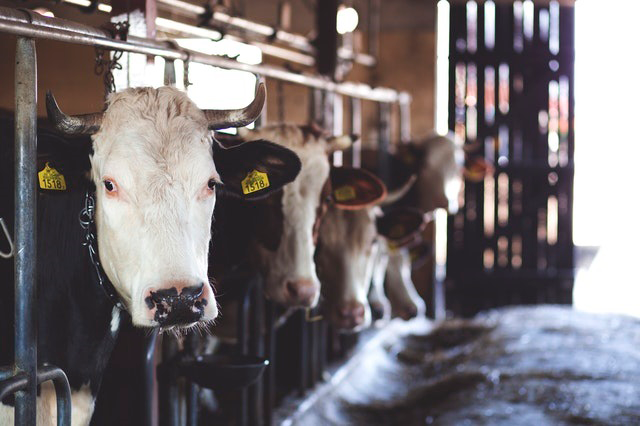
When it comes to stormwater discharges from agricultural operations, every so often New York State (NYS) has to ask: where’s the beef?
As a result of that inquiry and after careful review of existing guidelines, the New York State (NYS) Department of Environmental Conservation (the “DEC”) recently decided to publicly notice a draft of the new State Pollution Discharge Elimination System (SPDES) General Permit for concentrated animal feeding operations (CAFOs). Companies affected by the new permit had the chance to voice their concerns or support of the proposed new General Permit, GP-0-19-001, through October 5, 2018.
What in the world are CAFOs and why are they problematic?
“CAFOs” are large-scale concentrated animal feeding operations. They are classified by the type and number of farm animals raised in confinement, and the way they discharge waste water. CAFOs often discharge animal waste into the water supply (i.e., rain or wastewater runoff with animal droppings will make its way into local streams or sewer pipes that discharge into “waters of the United States”). Because of that, these facilities require a stormwater pollution discharge permit, authorized either by a National Pollutant Discharge Elimination System (NPDES) permit or by a state-equivalent permit program. New York’s SPDES program is a NPDES-approved program with permits issued in accordance with the Environmental Conservation Law and the federal Clean Water Act.
By the very nature of their operations, CAFOs pollute the water and, if unregulated, can create hazards for human health. Naturally, one of the biggest issues related to CAFOs is animal waste, which is abundant and can be difficult to get rid of safely. It usually contains contaminants, parasites, viruses and bacteria, organics, and biochemical oxygen-demanding materials, among other things you wouldn’t want to find in your glass of water or in your local fishing pond. CAFOs typically store animal waste in open lagoons, and when the lagoon level gets near the brim, its contents are sprayed onto nearby fields. When there is too much of this, the waste saturates the soil and leaks (or leaches) into the aquifer and nearby rivers and streams. In this scenario, everything that Mother Nature cannot filter out through biodegradation ends up in water used for drinking or recreation.
What is the new stormwater permit, and how is it different from the last?
If GP-0-19-001 passes the public notice and comment period, the new permit will be effective on July 8, 2019 and will expire on July 23, 2022. The draft permit covers CAFOs with a discharge from their production areas to surface waters of the State. It also authorizes discharges of non-contact cooling water to non-trout surface waters of the State in certain cases.
Important changes to be aware of:
· The DEC is replacing a Comprehensive Nutrient Management Plan (CNMP) or an Annual Nutrient Management Plan (ANMP) with a Nutrient Management Plan (NMP). The DEC will review, approve, and publicly notice the NMP. The DEC may require the CAFO owner/operator to revise the NMP after the public notice and comment period. Once it is revised, the DEC will notify the owner/operator and the public of the terms and conditions of the permit and that the owner/operator is approved to implement.
· The CAFO owner/operator is required to submit any change to the DEC for review and approval, and there is no longer a requirement to submit the NMP annually. The DEC will determine whether the changes are “substantial,” rather than the old standard of “significant.” All revised NMPs will be publicly available. GP-0-19-001 still requires the owner/operator submit an Annual Compliance Report to the DEC.
· GP-0-19-001 lists all effluence limitations in Part I.B-C to ease compliance with federal CAFO regulations.
Who must obtain coverage?
Any owner/operator of a new CAFO that is eligible for coverage under GP-0-19-001 must obtain coverage prior to operation of the CAFO. To obtain coverage, submit a complete Notice of Intent (NOI) and farm-specific NMP at least 60 days before July 8, 2019.
For more information on the SPDES General Permit for CAFOs, visit the DEC’s website on the CAFO General Permit here.
Call the attorneys of Periconi, LLC at (212) 213-5500 if you believe your facility would be impacted by the DEC’s proposed SPDES General Permit for CAFOs or have general questions about the DEC’s SPDES permitting process.

